Education: Jewish Education
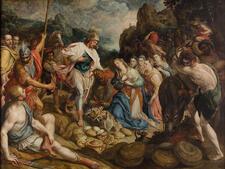
Abigail: Bible
Abigail, the intelligent and beautiful wife of the wealthy but boorish Nabal, intervenes to prevent David from committing a bloodbath and eventually becomes one of David’s wives (1 Samuel 25). She prophesies that David will establish a dynasty, but neither she nor her son play a role in future struggles over rule or succession.

Paula Ackerman
Paula Ackerman took over leadership of her husband’s synagogue after his death in 1950, when the congregation insisted on her appointment. For the next three years, Ackerman was the first woman to serve as religious leader of a mainstream American congregation, helping to pave the way for the ordination of women rabbis twenty years later.
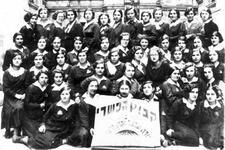
Agudat Israel: Interwar Poland
Agudat Israel, the world movement of Orthodox Jewry, introduced substantial reforms that changed the status of women in Orthodox society. In particular, the Bais Ya’akov model pioneered by Sarah Schenirer focused on women’s education as a way of creating a more robust Orthodox community against the pressures of modernity.
Mildred Elizabeth Levine Albert
Mildred Albert charmed the fashion world as an international fashion consultant, lecturer, columnist, and radio and television personality. She carved a niche for herself in the fashion world as the head of a modeling agency and an inventor of new kinds of fashion shows.
Anna Marks Allen
Anna Marks Allen was part of a group of Philadelphia Jewish women who established and ran the first independent Jewish charitable societies in the United States. At a time when congregational Jewish life was restricted to men, Jewish women of Allen’s social status increasingly turned towards philanthropy as a way to participate in the public life of the Jewish community.
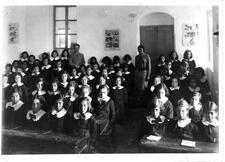
Alliance Israélite Universelle, Teachers of
Founded in 1860 by six French Jewish intellectuals, the Alliance Israélite Universelle set out to teach Jewish children at schools all over the world. The diverse group of teachers in the Alliance carried out the organization’s mission, but its women teachers were particularly impactful in criticizing the leaders’ patronizing attitudes and pushing for female empowerment.
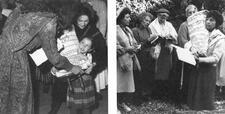
American Jewish Congress
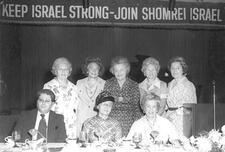
AMIT
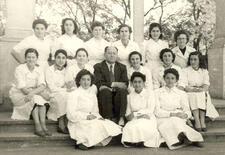
Argentina: Jewish Education
Over the course of the twentieth century, Jewish educational opportunities expanded for girls and teaching as an occupation became a possibility for Jewish women in Argentina. The 1920s saw the first female teachers in Jewish schools, and by the end of the 1950s, seventy percent of teachers were locally-trained women.

Argentina: Sephardic Women

Australia: 1788 to the Present
The first Jewish women, like the first Jewish men, arrived in Australia on the very first day of European settlement in 1788. Those convict pioneers were followed by free settlers who made Jewish communal and congregational life viable and helped to develop the vast continent. Jewish women have made significant contributions to Australia's national story.
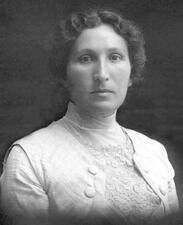
Sara Azaryahu
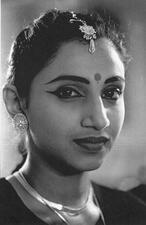
Baghdadi Jewish Women in India
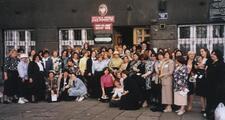
Bais Ya'akov Schools
Bais Yaakov is a network of schools and youth movements for Orthodox girls, which was founded in Krakow, Poland, in 1917 and grew into a system of hundreds of schools in Poland and beyond. It quickly rebuilt after the Holocaust and thrives today in Orthodox communities around the world.
Golde Bamber
Golde Bamber envisioned and institutionalized new educational structures to serve Jewish immigrant communities in Boston in the late nineteenth and early twentieth centuries. She served as director of the Hebrew Industrial School for Girls for forty years. Bamber’s pioneering work influenced settlement house, vocational, Jewish, and nursery school education in Boston and beyond.
Asnat Barazani
Asnat Barazani was a highly educated and respected Torah scholar in late 16th and early 17th century Kurdistan. After her father’s death, he passed leadership of his Yeshiva in Mosul to Asnat’s husband, but she essentially ran it, taking rabbinic students under her supervision.

Devorah Baron
Devorah Baron is one of the few Hebrew women prose writers in the first half of the twentieth century to gain critical acclaim in her lifetime. She wrote primarily about Jewish women’s lives, focusing on the challenges women faced in a society that did not value them equally. Her work was in dialogue with European writers, including Chekhov and Flaubert, and with Hebrew modernist writer S. Y. Agnon.
Matilde Bassani Finzi
Matilde Bassani Finzi was an active Italian anti-fascist who relentlessly fought the injustices of Mussolini and the Nazis. She continuously worked towards the ideals in which she believed: freedom, democracy, and equality for women.
Rose I. Bender
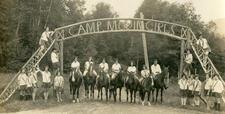
Libbie Suchoff Berkson
Libbie Suchoff Berkson was beloved by generations of campers as Aunt Libbie, director of Camp Modin for girls. She helped to establish the Jewish summer camp and ran it for decades, even while living in Israel and working on several other projects, such as a kindergarten and a teahouse.
Rayna Batya Berlin
Rayna Batya Berlin was a Lithuanian woman committed to religious study who argued that women should be able to study the Torah and the Talmud. The only source of her life was written by her nephew, who describes her frustration with her subjugated status in her community and how she generally suffered in silence.
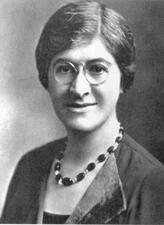
Adele Bildersee
A feminist before her time, Adele Bildersee was an advocate for women in education. She graduated with the first class of the then all-women’s Hunter College in 1903 and went on to help found Brooklyn College, serving as both its dean of students and its director of admissions.
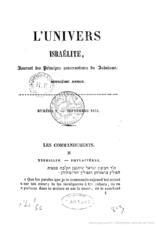
Julienne Bloch
Julienne Bloch was a writer and educator who used her career to strengthen the Jewish community in nineteenth-century France by pushing back against the assimilation and secularization of her fellow French Jews, especially Jewish women.
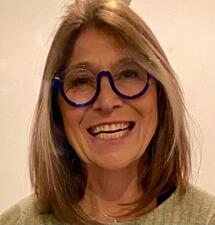
Analía Bortz
Analía Bortz is the first Latin American woman ordained as a Conservative rabbi. Her approach to spirituality and religion combines with her medical training. As a doctor specializing in bioethics, she has also helped women and couples with fertility issues.
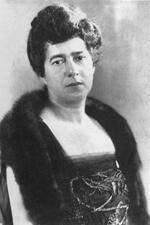
Rose Brenner
As president of the National Council of Jewish Women, Rose Brenner focused on inclusion of people who were often marginalized—the deaf, the blind, and those isolated in rural areas.


